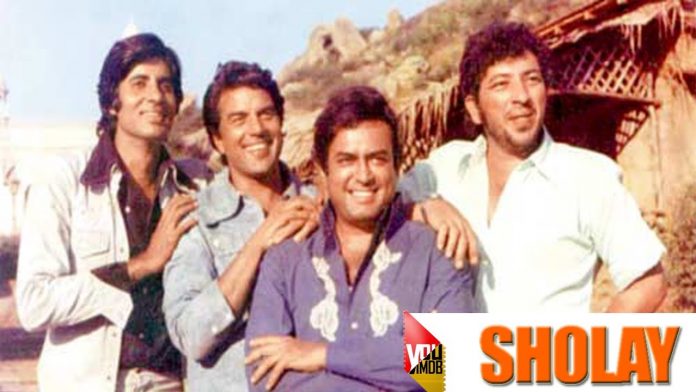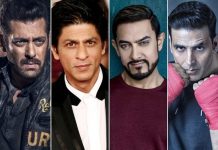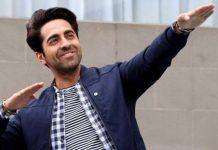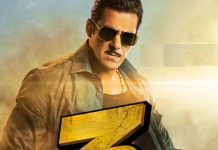By Surendra Bhatia
Dance Of Democracy
The ongoing national elections have been tumultuous, angry, vitriolic, and, in Bengal particularly, violent. They have been on since last 50-odd days, too long really to choose the kind of politicians we eventually do, and each day of campaigning has brought new lies from the leaders across the spectrum, new allegations, some so obviously made up by those with IQ lower than a slightly slow kindergarten student, new conspiracy theories, some dating back to 1950, and fresh promises that everyone knows will not be kept…
How can the public arrive at a sensible conclusion when all around us, the media is politically tilted either one way or the other? Each TV channel has chosen the new political masters it wants us to have, and is pushing the choice down our throats every hour; the print media too is committed to specific political parties and tailors the ‘news’ accordingly; local opinion makers, sometimes known as goondas, have been hired to coerce their regions or communities to vote in a particular way, and the people, the ordinary aam janata, jostles with ‘breaking news’ facts, swings this way when it is disclosed that main opposition leader may be a British citizen, and that way when TV channels scream that the economy, having become the world’s fastest growing in last five years, is near collapse.
General election 2019 has been scary for the ordinary person in the street. The campaign has been like a long horror film, with one gruesome incident following another, keeping audience on the edge of seat, muscles tensed, heart pulsating with dread for the future and ground slipping away from under the feet…
But Indian elections are called, thankfully, Dance of Democracy, providing an open door to Bollywood. Indian film personalities may not know much about politics but they sure do know a bit about dancing. It is what makes them feel at home, even guys like Dharmendra and Sunny Deol. They know that dance means entertainment, light relief, letting audiences relax, smile, unwind, and that’s exactly what they have been doing this election season. Film guys may act like politicians but they are no different at public rallies than they are on screen, and that act comes easy to them. In all the agonising political verbal grenades exploding all across the country during these elections, our film personalities have been the only ones providing comic relief, and bringing forth genuine smiles from the public at rallies, and from the ones watching them on TV.
Sunny Deol has grown a beard and donned a turban and become the Sardar he was meant to be… this is called getting the setting just right, for, he is fighting elections in Punjab’s Gurdaspur constituency where it is important for the electorate to know that Sunny is very much at home. He smiles brilliantly, more easily than he does on screen, standing atop his decorated truck and looking down at his audience; he showers petals on them and occasionally flexes his biceps to remind them of his dhaai kilo ka haath. Sunny knows his limitations; he can dance but would rather not. So, he’s opted for the alternative that he usually does in films – take panga, narrow his eyes and look angry. It has worked for him fine for more than two decades of acting so why not now, too? His political rival, apparently someone named Jakhar, has become the villain against Sunny’s hero act. Sunny glares when his rival’s name is mentioned and the way he mouths Jakhar is no way different from Dharmendra’s venomous ‘Gabbar’ shout when the villain forces Hema Malini to dance in Sholay. The influences are quite visible.
Sunny is doing what he can to woo the masses, and he’s pulled in heavy artillery into the battle in the form of his father. Dharmendra stormed into Gurdaspur and immediately held a press conference where he angrily gave a mouthful to that son of a Jakhar. Basically, his spiel was, ‘how dare he take panga with my darling son, Sunny, who can do no wrong?’ There was the usual ‘we love everyone in Gurdaspur, and Gurdaspur loves us, so let’s kick this Jakhar out’. Now, with Dharmendra and Sunny joining forces in the climax of a movie, how can they not triumph? Also to be remembered is that Gurdaspur had elected Vinod Khanna four times – in 1998, 1999, 2004 and 2014. So, the prognosis for the current hero-to-be of Gurdaspur is quite bright.
Kamal Haasan, with his newly launched political party but sandwiched between two heavyweight political rivals, looks lost in the battle for the electorate. Unfortunately for him, Rajinikanth decided to keep his newly-launched political party out of the contest this election. Had Rajinikanth taken an active plunge in electoral politics, it is possible that the rivalry between Kamal and Rajini would have overshadowed the traditional poll battles between DMK and AIDMK, but that was not to be. Sidelined almost totally, Kamal did what he could to hit the headlines and for that he had to resort to dialoguebaazi: Nathuram Godse, the assassin of Mahatma Gandhi, he declared, was free India’s first Hindu terrorist. Of course, he made it as the headliner of the day in all Indian media, and, if luck goes his way, he might even earn a mention in the next Time issue.
His detractors lashed out at Kamal with logic: how does an assassin become a terrorist? And at a time when we are told by liberals like Kamal that Muslim terrorists have no religion and have nothing to do with Islam, how does a murderer become a ‘Hindu’ terrorist? But the detractors were barking up the wrong tree. They missed entirely Kamal’s point which was to make it to the headlines, which he did so successfully. If at the end of it, he sounded like a bit of a bad joke, well, sometimes comic sequences fall flat in films too, so what’s the big deal?
Then there is Urmila Matondkar, probably the one actor who seems to have rehearsed well for the political role and is doing a pretty good job too. In films and for political jaunts, all actors are superbly costumed, just right for the act, so it is no surprise that Urmila looks just perfect in the role; some unfair people may say that she looks more like a politician’s wife than a politician herself but critics aren’t easy to please, not in films, not in real life. Urmila’s speeches – in Hindi, Marathi and English – are delivered with poise and clarity; not just her articulation and the pauses but even her body language – arms pumping, clenching fists, looking straight at the crowd, exhorting them to respond to her, are just so perfect. She smiles easily and spontaneously; she doesn’t get rattled by crowds – in fact, she feeds on their adulation, beaming even more, and looks the absolute sport, the kind you would love to take with you to the PTA meeting. She’s flawlessly in her role and should score the maximum points, if a rating agency or Filmfare starts handing out awards for Best Actor in Politics.
Urmila’s film career was good but it never scaled the heights it should have – given her natural talent – because she always seemed over-prepared, over-rehearsed and too needy for approval. She was definitely hardworking but on screen, despite the hard work put in, she tried to seem spontaneous but ended up seeming too rehearsed-spontaneous. So, Urmila has done everything she needed to bag the election and now, it is up to the aam janata of her constituency to please treat her a little better than film audiences have done in the last decade. She deserves to win; she has worked hard to win, so now, please, just give it to her!
Shatrughan Sinha is a totally different kettle of fish. He’s the real politician among all Bollywood stars though in terms of success, a rung lower than, maybe, Sunil Dutt. He’s been at the top of his new profession – politics – for over a couple of decades. He’s been a minister and a top BJP leader. Unfortunately, just a couple of years short of the age of 75, he got the message that his political opportunities would keep diminishing in BJP and he wasn’t willing to accept that. In his film career, he had gone from villain to hero and he did not want to downgrade himself to a character actor in politics. So, he went ahead and joined the Congress which he had lambasted all through his political career. Considering the circumstances and his political ambitions, one would say, “fair enough”, go where the future seems brighter. But Shatru the Shotgun is not such a simple man. Not many of his fans know but he is a very funny man. Even as he switched to the Congress, he got his wife to enrol in Samajwadi Party and stand for elections. This is super; it’s like an actor (of Shotgun’s generation) riding two boats, of being in the Rajesh Khanna camp as well as the Bachchan camp! It does seem like Shatru has taken seriously to comedy politics in his old age; accepting that the idea of living is not to go by principles but by what provides the most fun. It suits him, though; he was always a man of earthy humour.
Hema Malini has never been a prima donna; in fact, not known much to the masses, Hema is actually the most down-to-earth person, with an innate skill or intuition to get to the root of an issue. She has no pretensions. She is what she is. She has no hassles about campaigning in public but if it is in the heat of May, please ensure that sweat doesn’t break out on her eyebrows. That’s the least any female star should expect even if she is now a politician. So, she went out in the heat, sat on a farm tractor, posed for pictures like she was ploughing a field but to ensure that she looked great in photographs, and not sweaty and soiled, she just had three-four coolers mounted on the tractor, blowing cool air on her eyebrows. Some newspapers published photographs and encircled the coolers to prove that special comforts had been extended to Hema, but knowing her, she would have just laughed. Besides, is it wrong to make farm life more comfortable? Laloo Yadav compared the roads he never built, to the smoothness of Hema’s cheeks. It was a great compliment but, as all can see, it comes with a few coolers attached to the tractor. Bollywood personalities are usually fun, in films, off sets and in politics. Armed with the knowledge that they are the chosen ones of the Gods that be, they don’t go around organising violence like a few political parties are currently doing in West Bengal. Politicians from Bollywood just go about their business, looking good and smiling through debates in Parliament. They don’t scream and hurl insults at rivals; they aim for accord and ensure that they don’t give any occasion to anybody to take them for granted. Yes, it is true that they might not make it to the prime minister’s chair but what of it? They are looking for a role they can play intermittently, not get wedded to it. For that, there are always the Smriti Irani kind, the TV types, who can play the same role for years and years. For Bollywood, politics offers a role that they can play when they have the time. Sure, the role might extend to five years but they give it only 50-60 days a year, and that’s manageable commitment among the many other roles they continue to play. And so it is going to be for the Bollywood stars who manage to get elected in the general elections 2019.































